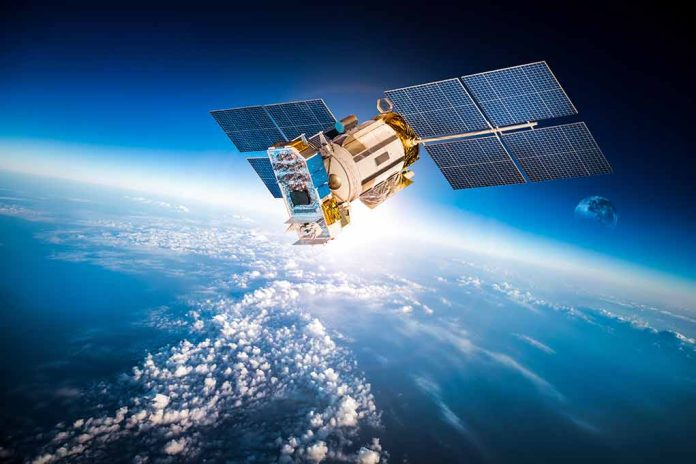
Elon Musk’s call to deorbit the International Space Station (ISS) sooner than planned has ignited a fierce debate about the future of space exploration and the path to Mars.
Key Takeaways
- Elon Musk proposes deorbiting the ISS within two years to focus on Mars exploration
- NASA plans to use the ISS until 2030 for scientific research and training
- Musk’s growing influence in space policy could impact future decisions
- Experts disagree on the ISS’s continued relevance for Mars missions
- The proposal raises concerns about the continuity of microgravity research
Musk’s Bold Proposal Challenges NASA’s Timeline
Elon Musk, the visionary behind SpaceX, has sparked controversy by urging the U.S. government to accelerate the decommissioning of the International Space Station. Musk argues that the ISS, which has been operational since November 2000, has fulfilled its purpose and that resources should be redirected towards the ambitious goal of human settlement on Mars.
Musk’s proposal stands in stark contrast to NASA’s current plans, which involve utilizing the ISS until 2030 for scientific research and as a training ground for future Moon and Mars missions. The space agency, along with its international partners, has already contracted SpaceX to develop the United States Deorbit Vehicle (USDV) for a controlled descent of the station at the end of its operational life.
A NASA spokesman sent this out to the media just now (doesn't say much, but clearly they've had a lot of media asking for a comment).
“NASA’s current mission plans call for using the International Space Station, and future commercial space stations, in low Earth orbit to conduct… https://t.co/4aveu3z9rN
— NSF – NASASpaceflight.com (@NASASpaceflight) February 20, 2025
Debate Among Space Experts Intensifies
The proposal has ignited a heated debate within the space community. Retired NASA astronaut Leroy Chiao emphasized the ongoing importance of the ISS, stating, “I absolutely agree that Mars is the next big goal. That’s a great goal…getting humans to Mars. But you know, the space station is a part of that.”
Elon Musk, however, feels differently, saying, “It has served its purpose. There is very little incremental utility. Let’s go to Mars.”
This stark difference in opinion highlights the complex considerations at play. While Musk sees the ISS as a potential distraction from Mars exploration, many in the scientific community view it as an essential stepping stone, providing crucial data and experience for long-duration space missions.
DEORBITING THE ISS: A STRATEGIC LEAP FORWARD
The International Space Station is deorbiting by 2028 as its returns dwindle and upkeep costs climb, redirecting focus to Mars exploration.
It is going to be brought down by SpaceX’s upgraded Dragon spacecraft, wielding 46 Draco… https://t.co/MyJfKCNN1P pic.twitter.com/Ql6BlzLVTE
— Mario Nawfal (@MarioNawfal) February 20, 2025
Implications for Space Policy and Research
Musk’s growing influence in U.S. policy, including his role in the Department of Government Efficiency (DOGE), suggests that his opinions could significantly impact future space policy decisions. This potential shift in focus raises concerns about the continuity of microgravity research and the readiness of commercial alternatives to the ISS.
According to NASA, their “current mission plans call for using the International Space Station, and future commercial space stations, in low Earth orbit to conduct groundbreaking science, as well as a training ground for crewed missions to the Moon and Mars. We’re looking forward to hearing more about the Trump Administration’s plans for our agency and expanding exploration for the benefit of all.”
NASA’s response emphasizes its commitment to using the ISS and future commercial space stations for ongoing research and preparation for deep space missions. The agency’s plans for a smooth transition to commercial low Earth orbit (LEO) operations by 2030 could be disrupted if Musk’s accelerated timeline gains traction.
The Road Ahead: Balancing Ambition and Practicality
As the debate unfolds, the space community must grapple with balancing the ambitious goal of Mars exploration with the practical benefits of continued ISS operations. The decision will have far-reaching consequences for international space cooperation, scientific research, and the timeline for human expansion into the solar system.
While Musk’s vision of a rapid pivot to Mars is compelling, it must be weighed against the wealth of ongoing research and international collaboration facilitated by the ISS. As NASA and its partners work towards the moon and beyond, the coming years will be crucial in determining the future direction of human space exploration.
Sources:
- https://m.economictimes.com/news/international/global-trends/nasa-international-space-station-deorbiting-elon-musk-calls-for-nasa-iss-deorbit-says-its-time-to-move-onlets-go-to-mars/articleshow/118445068.cms
- https://spacepolicyonline.com/news/nasa-responds-to-musk-statements-about-deorbiting-iss-butch-and-suni/
- https://www.foxnews.com/us/elon-musk-calls-deorbiting-international-space-station-prioritize-mars-missions



